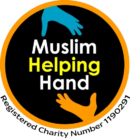Female Education
Muslim Helping Hand
Empowering Women: Our Female Education Initiative
The importance of female education in promoting sustainable development and reducing poverty has long been acknowledged. Several charitable groups like Muslim Helping Hand worldwide are working to give girls and women opportunities for education as a result of this realization.
A significant area of concentration for many humanitarian organizations around the world is female education. There are several reasons for this, including the possibility that educating women and girls can fundamentally alter their outlook on life and the lives of their families and communities.
Charity organizations like Muslim Helping Hand that promote female education frequently aim to solve the multiple obstacles that stop girls and women from receiving school, such as poverty, discrimination, child marriage, and cultural attitudes about women’s education.
Some of how organizations work towards promoting female education include:
- Providing financial support for girls and women to attend school or university.
- Building schools or classrooms in remote areas to increase access to education.
- Providing educational materials and resources such as books, computers, and scholarships.
- Working with local communities and parents to promote the value of girls’ education.
- Providing vocational training and skills development opportunities to girls and women to help them gain economic independence.
Donating to female education through charity can have a significant positive impact on individuals, families, and entire communities. Here are some reasons why:
- Providing access to Education: In underdeveloped nations, many girls confront major obstacles to obtaining an education, including poverty, child marriage, and cultural norms that place a higher priority on boys’ education than on girls’. By funding scholarships, constructing schools, and providing resources like textbooks, uniforms, and school supplies, charities try to break down these obstacles.
- Addressing health Issues: Health problems like hunger, shoddy sanitation, and a lack of access to healthcare frequently interfere with girls’ ability to learn. Charities deal with these problems by giving them access to healthcare, decent meals, and health education.
- Addressing systemic Issues: Charity also understands the need to address systemic problems like poverty and gender discrimination if girls are to have access to high-quality education. To bring about long-lasting change, they promote policy modifications, strive to increase public awareness of the value of girls’ education, and collaborate with regional organizations.
- Empowerment: Empowerment can be achieved through education. As a result, they will be more equipped to pursue their goals, take part in decision-making, and affect change in their communities. It can also assist girls and women in developing the skills, knowledge, and confidence that will allow them to do so. By giving women and girls the knowledge, abilities, and self-assurance they need to make wise decisions about their lives, health, and futures, education empowers these groups of people. As a result, their families, communities, and themselves gain from their increased independence and self-sufficiency.
- Economic development: Through increasing productivity, raising the standard of their job, and encouraging entrepreneurship and innovation, educated women may help the economy grow. To end the cycle of poverty, education is also a crucial weapon. Women with higher levels of education are more likely to be employed, have higher earning potential, and are better prepared to launch their businesses, all of which can boost the local economy.
- Improving health Outcomes: Women with greater education are more likely to seek medical attention and practice healthy habits for both themselves and their families. In their local communities, they can also act as champions for illness prevention and health education. Women who have received education are more likely to be aware of health issues and to take action to protect their own and their families health. Research has demonstrated that maternal education has a major impact on child health and survival rates.
- Promoting Gender Equality: By giving them equal opportunities for education, employment, and leadership positions, education for girls and women can aid in the reduction of gender inequities. A critical first step toward attaining gender equality is funding female education. Education can support efforts to question and alter cultural beliefs that restrict women’s chances, lessen violence against women and other forms of discrimination, and advance women’s rights.
Investing in female education is a powerful way to create positive and sustainable change in communities. Donating to female education through Muslim Helping Hand (MHH) can help to create a more equitable and prosperous society by empowering women and girls.
